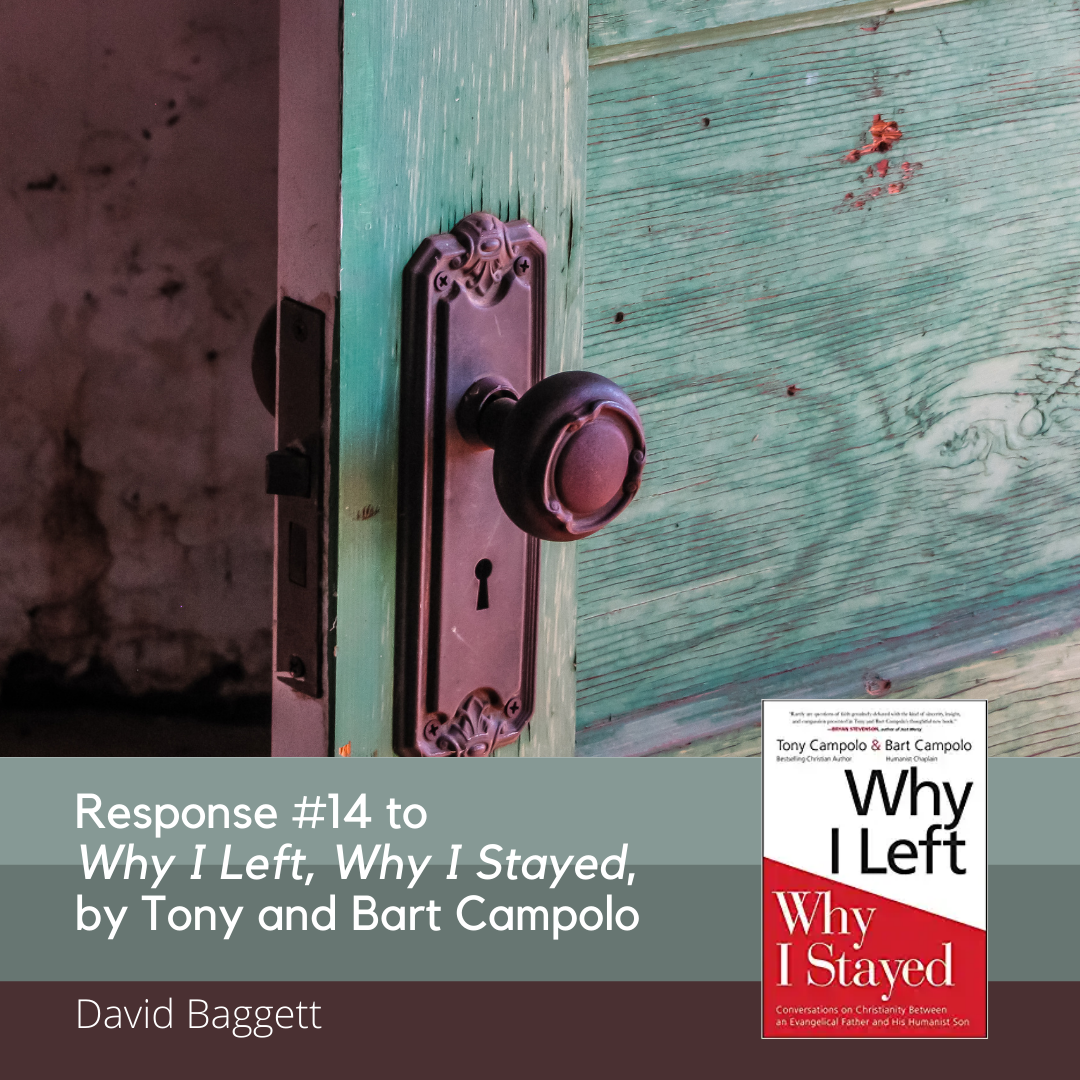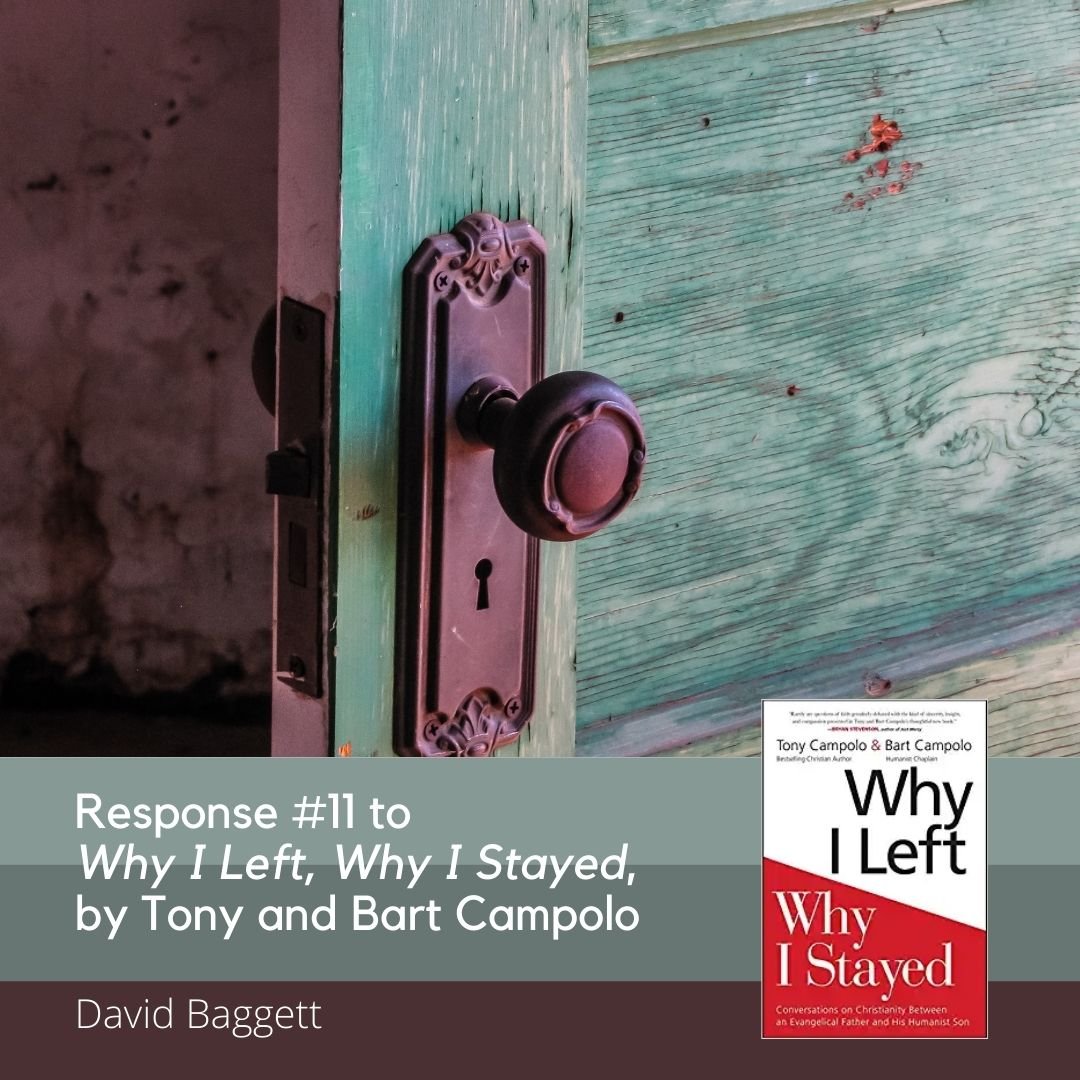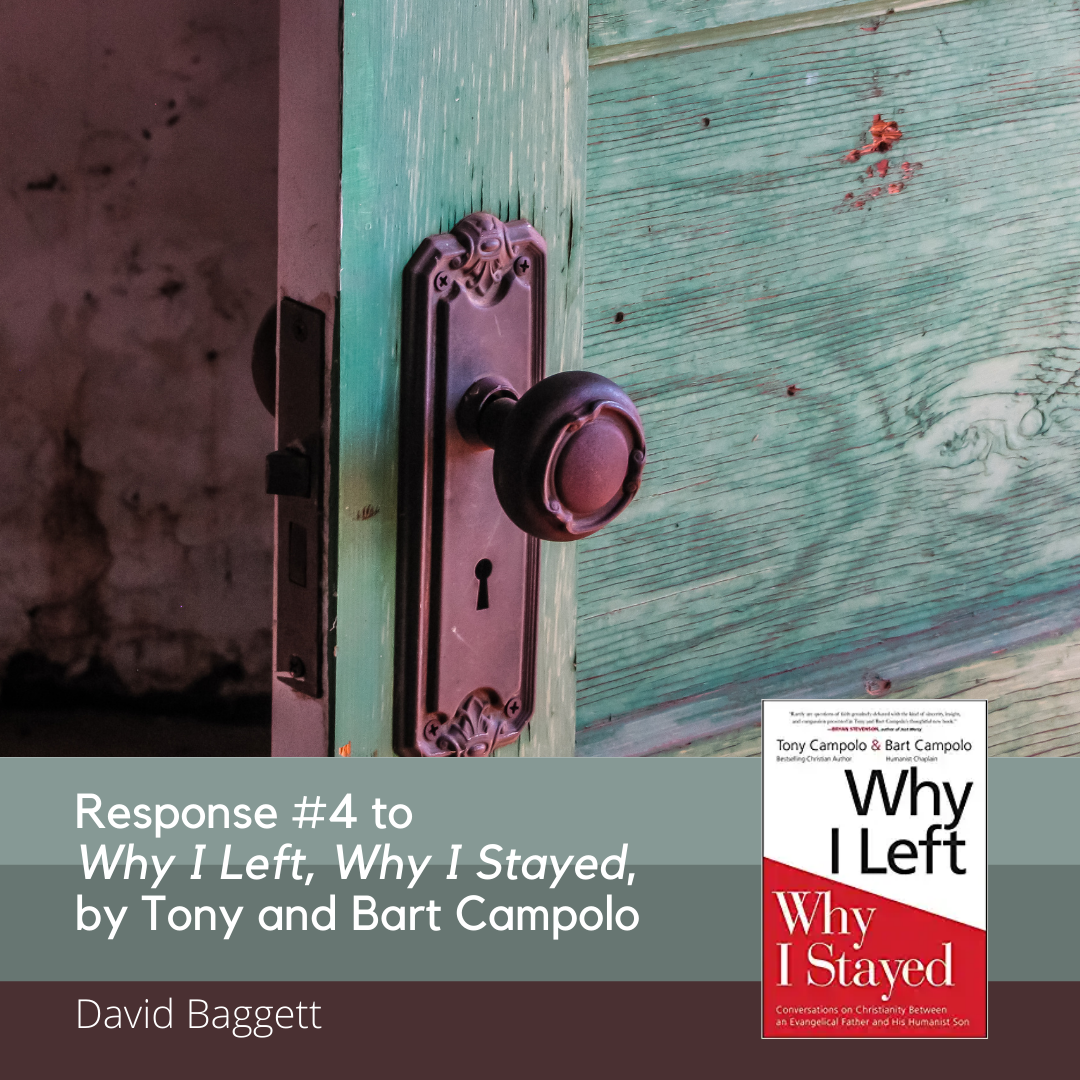Reflections on Why I Left, Why I Stayed, by Tony and Bart Campolo, Part 14
/Continuing our perusal of Bart’s chapter called “Life on the Other Side: The Happy Reality of Secular Humanism,” we left off discussing Bart’s secular chaplaincy at USC, geared toward those who hunger for a secular spirituality. The fact that Sam Harris a few years ago wrote a book on spirituality is testament to the reality of this movement among certain secularists. As Bart puts it, “If you want to fully actualize your noblest values, you’ve got to find like-minded people and band together. Nobody becomes or remains good in isolation. We have to help one another grow.”
Much of this seems to be a recognition of our communal nature as human beings, something that fellowship with like-minded believers and various shared habits and rituals can help facilitate and fulfill. Christians often speak of various “means of grace,” regular fellowship among them, as means by which to appropriate God’s grace for encouragement, support, direction, and the like. Undoubtedly there is a sociological component to this that can be isolated and pursued apart from explicit references to divine activity, and this seems to be the space that one like Bart has carved out for himself. Of course, such possibilities underdetermine whether relegating the divine element to obscurity or irrelevance is correct.
In fact, it’s likely predictable that some would look at church activities and religious practice and come to think that the sociological dimension is really the only actual dynamic in operation. Of course Christians shouldn’t succumb to this temptation, and rather they should bear in mind that the horizontal relationships, though vital, are not the only or even the most important relationships at play. To treat God as eliminable from the equation might seem to Bart a relatively small change, but potentially it’s quite a spectacular missing of the point. Investing our hopes in human relationships to fill the vacuum in our hearts that only God can fill is a pipedream. That said, though, to emphasize the relationship with God to such an extent that we neglect the relationships with our neighbors, is to misunderstand some of the import of our religious faith.
Bart doesn’t pursue a negative approach in his secular ministry. Rather, he writes that, first, “you have to teach your friends to love one another, and then you have to teach them how to attract and include outsiders by loving them as well. That’s why my new ideal ministry is practically identical to my old one, except that these days I rely on reason, science, and common sense to convince people that love is the most excellent way.”
Reason, science, and common sense. Perhaps this is a useful juncture to pause and subject this claim to a bit of critical scrutiny. The implicit suggestion here seems to be that reason, science, and common sense can be enlisted to the cause of an atheistic worldview and even of assigning primacy to love, and that somehow these sources, divorced from theism, provide enough resources for the job. I have my doubts about that.
The notion that reason and religious faith are at odds is of course practically a mantra among many of the deconverted, but as a Christian philosopher I find such claims, either explicit or tacit, to strain my credulity. Time and again in this book both Tony and Bart say their dialogue is not going to be yet one more debate about the evidential merits of theism or atheism. In an earlier post we discussed their allergy to wade into those waters too deeply. Yet the result of this mutual dialectical choice seems to confer permission to advance large assertions without evidence. So it’s unsurprising that Bart seems to subscribe to the notion that reason is on the side of unbelief. The occasional times when Bart does at least gesture toward arguments in favor of naturalism or against theism, he invokes names like Dawkins and Harris, which do little to instill confidence that he’s considered the best thinkers on the topic. As for my own views, I think the case for theism generally and Christianity particularly can be made on several strong evidential grounds—from historical to scientific to philosophical.
I suppose that someone could suggest that all that Bart is advancing here is that his argument for the primacy of love is confined to resources garnered from science, reason, and common sense—and not that this triad collectively points evidentially toward atheism rather than theism. But even so, this less ambitious agenda would raise a serious question of whether science, reason, and common sense would be enough to bolster an assignment of primacy to love.
If love is understood in substantive fashion, involving essentially a deep regard for the well-being of others, even if on occasion such regard entails self-sacrificial behaviors, is this sort of phenomenon somehow a deliverance of science, reason, or common sense, either individually or severally? Science largely seems to be an effort at describing the physical facts of the world. Reason and rationality can mean a variety of things, but it’s unclear why it would entail the superiority of a life of sacrificial love. Superior in what sense? Reproductive advantage, peace of mind, flourishing? Does science confer on one of these anything like normative priority? Are there not times when sacrificial love would militate against such things? And what of common sense? Is it common sensical to sacrifice, if need be, one’s own interests for the sake of others? That would quite a hard sell to one not already convinced that love is the better alternative.
In all three cases, although I am not suggesting that science, reason, or common sense necessarily rule out the central importance or value of a life of self-giving love, I rather doubt they comprise the primordial source of such importance or value. And in fact, elsewhere in the book Bart concedes that on his worldview he’s no longer warranted to believe in objective values of any sort, so one is left wondering how deep his commitment to a life of love can really be.
It’s of course eminently possible that he’s better than his worldview—I suspect he is—but for him somehow to think that his commitment to a life of love is a function of his emaciated worldview strikes me as a mistake. Bart is an atheist who values love, but that doesn’t mean that atheism can make much sense of doing so, or of love as an objective value, much less anything like a best explanation of why, normatively speaking, we ought to pursue such a life. Bart seems content to speak of love as the most excellent way, in some sense, but pretty clearly not in anything like a metaphysical sense; perhaps he’s simply after emphasizing the instrumental value of such a lifestyle. Surely he’s not wrong to see some of that value, but once more this seems to show that he seems more at home in the realm of social science than anything like philosophy, which pushes us to ask about the ontological foundations and metaphysical reality of something like sacrificial love and genuine altruism.
A Christian perspective, in contrast, explains how something like love really can and does function at the foundation of reality. It’s not merely instrumentally valuable, but intrinsically so, and evidentially significant in pointing us to the right understanding of reality and the human condition. But so long as Bart remains averse to following where the evidence of the most excellent way might lead, it would seem he will remain content with merely preaching to the choir of secularists whose preference (laudably enough) is to gravitate toward pro-social attitudes, but without implying that those whose preferences are quite different are in any sense deeply mistaken.
David Baggett is professor of philosophy and director of The Center for the Foundations of Ethics at Houston Baptist University. Author or editor of about fifteen books, he’s a two-time winner of Christianity Today book awards. He’s currently under contract for his fourth and fifth books with Oxford University Press: a book on moral realism with Jerry Walls, and a collection on the moral argument with Yale’s John Hare.






































